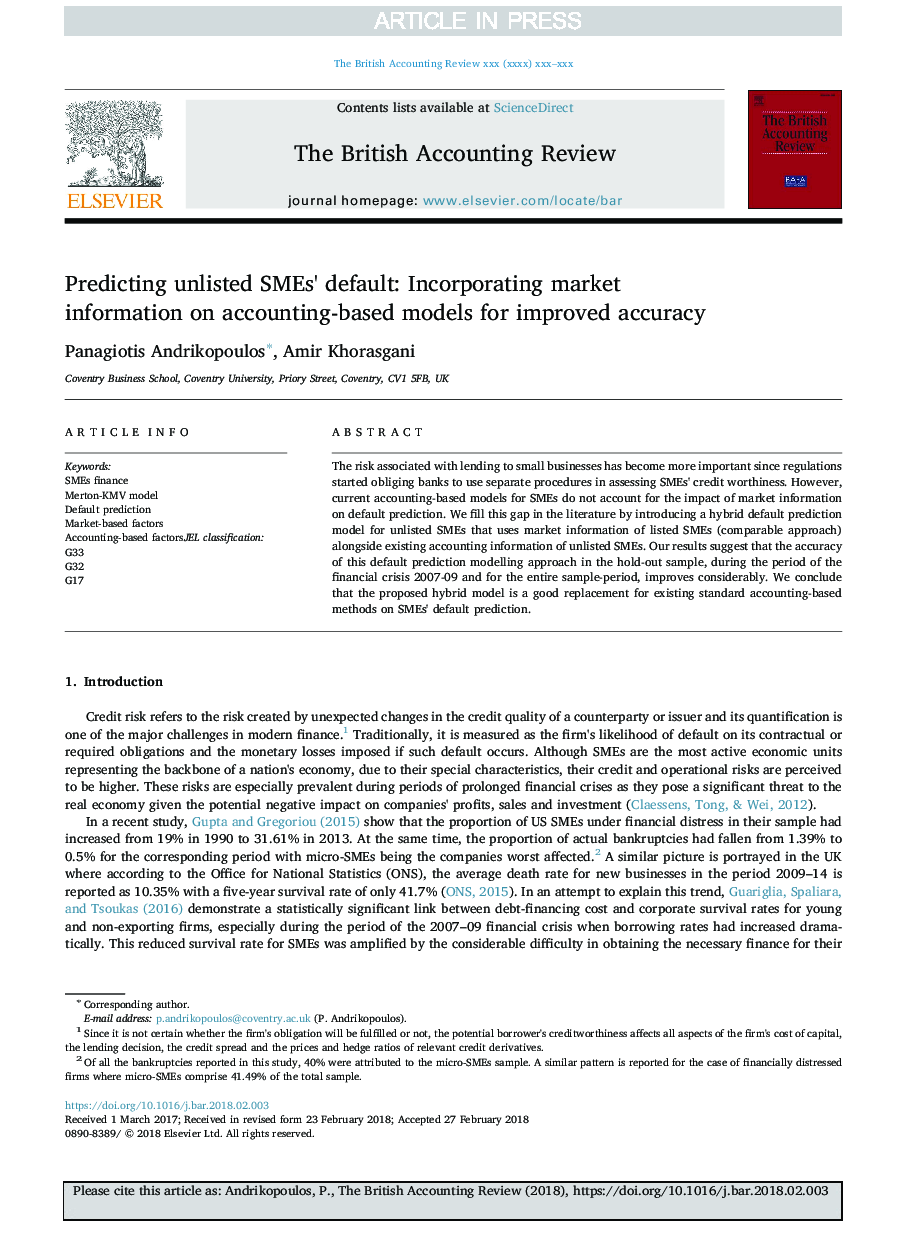| Article ID | Journal | Published Year | Pages | File Type |
|---|---|---|---|---|
| 8954650 | The British Accounting Review | 2018 | 15 Pages |
Abstract
The risk associated with lending to small businesses has become more important since regulations started obliging banks to use separate procedures in assessing SMEs' credit worthiness. However, current accounting-based models for SMEs do not account for the impact of market information on default prediction. We fill this gap in the literature by introducing a hybrid default prediction model for unlisted SMEs that uses market information of listed SMEs (comparable approach) alongside existing accounting information of unlisted SMEs. Our results suggest that the accuracy of this default prediction modelling approach in the hold-out sample, during the period of the financial crisis 2007-09 and for the entire sample-period, improves considerably. We conclude that the proposed hybrid model is a good replacement for existing standard accounting-based methods on SMEs' default prediction.
Keywords
Related Topics
Social Sciences and Humanities
Business, Management and Accounting
Accounting
Authors
Panagiotis Andrikopoulos, Amir Khorasgani,
